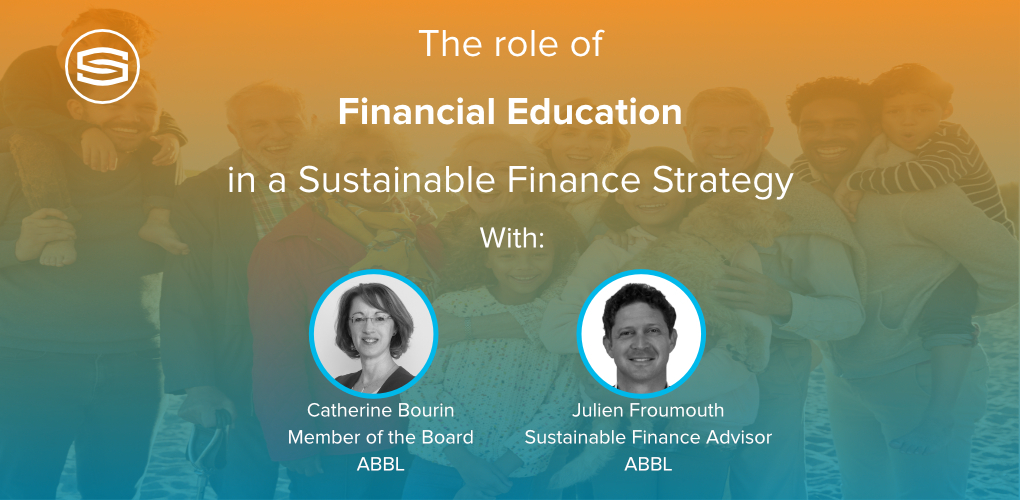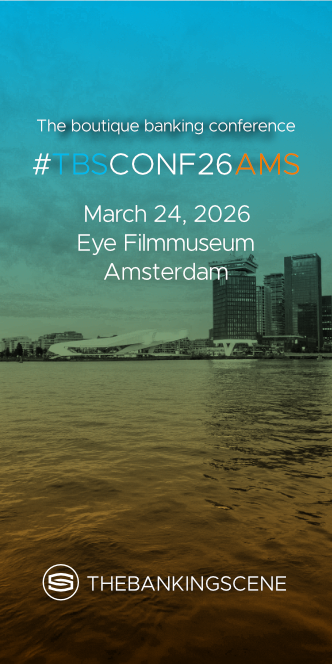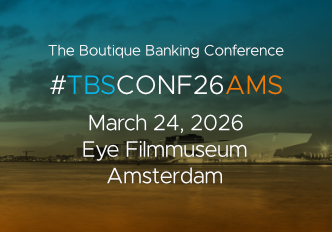
Insights & Opinions
The Role of Financial Education in a Sustainable Finance Strategy
Mon, 28 Nov 2022


We discussed the role of financial education in the path to a more sustainable finance industry last week, November 24th, 2022. We invited Catherine Bourin, a Member of the Board at ABBL and in charge of the Sustainability & Conduct at ABBL, covering compliance, CSR, Financial Education, Social Affairs and Sustainable Finance topics.
Julien Froumouth, a Sustainable Finance Advisor and respected expert in the field of ESG joined her.
The reason for this discussion was a survey mandated by the Commission de Surveillance du Secteur Financier (CSSF), La Fondation ABBL pour l’éducation financière (ABBL Foundation) and the Luxembourg Sustainable Finance Initiative to assess the perception and knowledge of Luxembourg households in the area of sustainable finance.
The survey was explicitly conducted before the new MiFID II amendments got into force on August 2nd to understand how big the challenge for banks and investment firms would be to comply with these new amendments.
The high-level principles of the MiFID II Amendments
I cannot go too deep into detail, but essentially, as of August 2nd 2022, firms providing discretionary portfolio management services or investment advice will need to add an ESG layer to their existing sustainability assessment, meaning that they must collect and document specific information about their clients' and potential clients' sustainability preferences.
That is a challenge, as financial advisors will now also have to be able to explain to their customers in a non-technical manner what ESG and sustainable finance means, allowing these customers to determine their preferred sustainable finance investment strategy.
The regulation also asks to help clients to differentiate preferences between:
- Investments complying with the Taxonomy Regulation, which focuses on the environment
- Investments complying with the Sustainable Finance Disclosure Regulation (SFDR), which focuses on the bigger ESG picture
- Investments that consider adverse impacts on sustainability factors
As usual with European regulation, the timing wasn't perfect because the European Financial Markets Authority (ESMA) issued its final report and final guidelines on specific aspects of the MiFID II suitability requirements only in September.
There are still open questions today on how to best implement the new amendments, which leads to much confusion, also within financial institutions.
A high need for financial education in the context of sustainable finance
All clients must be invited to share their preferences by August next year.
The first step in collecting consumers' preferences in the context of ESG in their investment strategy is ensuring they understand precisely what ESG is. The survey showed much work left in that respect.
41% shared that they didn't know what sustainable finance is, and another 6% shared that it is something which lasts in time (from the French wording "durable").
Of the ones that answered to understand sustainable finance said it was about ecology, climate and green economy. Only 3% referred to the complete ESG picture, including topics like social responsibility and human rights.
The challenge for banks is to explain sustainable finance to the 53% who don't understand the concept. Without that, measuring their preferences in the context of MiFID II is impossible.
After explaining the full meaning of sustainable finance, the survey also asked how people expect sustainable investments to outperform classical investments. 35% believed the ROI on sustainable investments to be less than classical investments, although sustainble investments have a higher ROI on average in reality.
The role of banks in financial education
Another striking conclusion of the survey was that 61% of the respondents saw the bank both as a source of reference and trust. Banks have a tremendous opportunity here, on the one hand, to explain sustainable finance and ensure they remain trusted.
Catherine made the comparison with the doctor: "As you expect from your physician to explain you about your health, you expect from your banker a simple explanation to understand how to invest your money optimally, and expectations from the bank are indeed high and show a major responsibility in the development of sustainable finance."
On the bright side, 21% shared that they have taken steps to invest in sustainable products, and another 53% believed that they could imagine doing so in the future. So luckily, the goodwill is there to contribute to a better future.
The bank's mission is to break the language barrier and translate the technical frameworks into the consumer's language. Catherine: "The banker is an expert that should slip into the shoes of the teacher using as few technical terms as possible and yet stay as close as possible to its obligation imposed by the regulators."
ABBL set up several initiatives to help its members with that mission. With the Luxembourg House of Training, they developed several trainings, from essential to expert, both on regulation, reporting products and soon on ESG risk management. They also give speeches at schools and universities to raise awareness.
To get the message to consumers, they speak to NGOs and civil society organisations to understand how to better inform consumers of sustainable finance and ensure the message gets even sharper and more transparent.
ABBL is trying to get financial literacy included in the school curricula. As this is not the case now, they look for alternatives to improve people's financial literacy with, for example, a radio campaign and a soon-to-be-released online game in an app free to use for everyone.
Catherine: "It's like a monopoly where you explore and visit planets. You have certain goals to achieve by answering quiz questions about your financial knowledge, your acquired knowledge about financial literacy, on the behaviour of how to manage your money properly."
Conclusion
The new MiFID II amendments have a clear goal: to create more transparency and improve investors' understanding of how they can contribute to a better future. The intentions are great. However, the effort of financial advisors to be up-to-speed with the new requirements should not be underestimated.
CSSF, ABBL Foundation and Luxembourg Sustainable Finance Initiative did a great job rationalising how big that challenge is. It shows that this is just the start. Now, the work starts to educate bankers on explaining sustainable finance to their customers in an understandable way and to guide them to an investment portfolio aligned with their ethics.
A sustainable future can’t be achieved in siloes, so it is instrumental to collaborate and for organisations like ABBL to partner with every stakeholder involved, as they are doing now.



